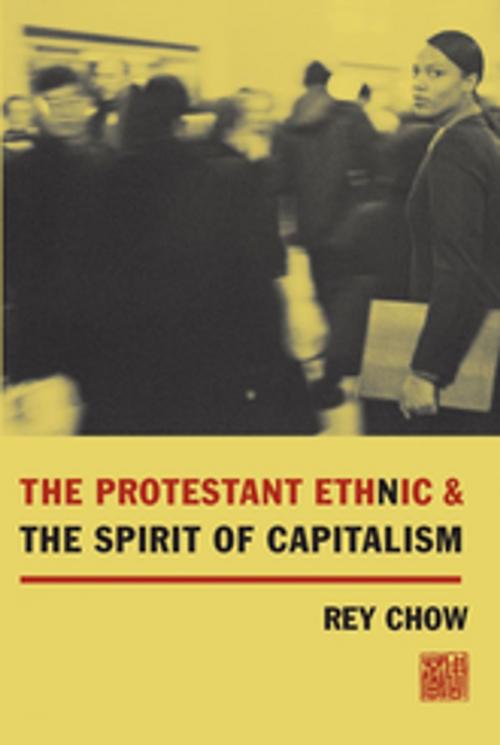The Protestant Ethnic and the Spirit of Capitalism
Nonfiction, Social & Cultural Studies, Social Science, Sociology, Marriage & Family, Fiction & Literature, Literary Theory & Criticism, Theory| Author: | Rey Chow | ISBN: | 9780231504485 |
| Publisher: | Columbia University Press | Publication: | October 2, 2002 |
| Imprint: | Columbia University Press | Language: | English |
| Author: | Rey Chow |
| ISBN: | 9780231504485 |
| Publisher: | Columbia University Press |
| Publication: | October 2, 2002 |
| Imprint: | Columbia University Press |
| Language: | English |
In late-capitalist Western society, cross-ethnic cultural transactions are an inevitable daily routine. Yet, according to acclaimed cultural critic Rey Chow, the notion of ethnicity as it is currently used is theoretically ambivalent, confusing, indeed self-contradictory, straddling as it does an uneasy boundary between a universalist rhetoric of inclusion on the one hand, and actual, lived experiences of violence and intolerance on the other. To drastically reconceptualize ethnicity in the contemporary world, Chow proposes that it be examined in conjunction with Max Weber's famous theory about the Protestant work ethic and capitalism, which holds that secular belief in salvation often collaborates effectively with the interpellation, disciplining, and rewarding of subjects constituted by specific forms of labor. The charged figure that results from such a collaboration, resonant with the economic, psychological, and spiritual implications of the word "protest, " is what she refers to as the protestant ethnic.
Chow explores the vicissitudes of cross-ethnic representational politics in a diverse range of texts across multiple genres, including the writings of Georg Lukacs, Michel Foucault, Max Weber, Jacques Derrida, Fredric Jameson, Etienne Balibar, Charlotte Brontë, Garrett Hongo, John Yau, and Frantz Fanon; the films of Alfred Hitchcock, Marguerite Duras, and Alain Resnais; and the cartoon drawings of Larry Feign. Tracing out hauntingly familiar scenarios from stereotyping and coercive mimeticism to collective narcissistic abjection, the rise of white feminist racial power, and intraethnic ressentiment, Chow articulates a series of interlocking critical dialogues that challenge readers into hitherto unimagined ways of thinking about an urgent topic.
In late-capitalist Western society, cross-ethnic cultural transactions are an inevitable daily routine. Yet, according to acclaimed cultural critic Rey Chow, the notion of ethnicity as it is currently used is theoretically ambivalent, confusing, indeed self-contradictory, straddling as it does an uneasy boundary between a universalist rhetoric of inclusion on the one hand, and actual, lived experiences of violence and intolerance on the other. To drastically reconceptualize ethnicity in the contemporary world, Chow proposes that it be examined in conjunction with Max Weber's famous theory about the Protestant work ethic and capitalism, which holds that secular belief in salvation often collaborates effectively with the interpellation, disciplining, and rewarding of subjects constituted by specific forms of labor. The charged figure that results from such a collaboration, resonant with the economic, psychological, and spiritual implications of the word "protest, " is what she refers to as the protestant ethnic.
Chow explores the vicissitudes of cross-ethnic representational politics in a diverse range of texts across multiple genres, including the writings of Georg Lukacs, Michel Foucault, Max Weber, Jacques Derrida, Fredric Jameson, Etienne Balibar, Charlotte Brontë, Garrett Hongo, John Yau, and Frantz Fanon; the films of Alfred Hitchcock, Marguerite Duras, and Alain Resnais; and the cartoon drawings of Larry Feign. Tracing out hauntingly familiar scenarios from stereotyping and coercive mimeticism to collective narcissistic abjection, the rise of white feminist racial power, and intraethnic ressentiment, Chow articulates a series of interlocking critical dialogues that challenge readers into hitherto unimagined ways of thinking about an urgent topic.















